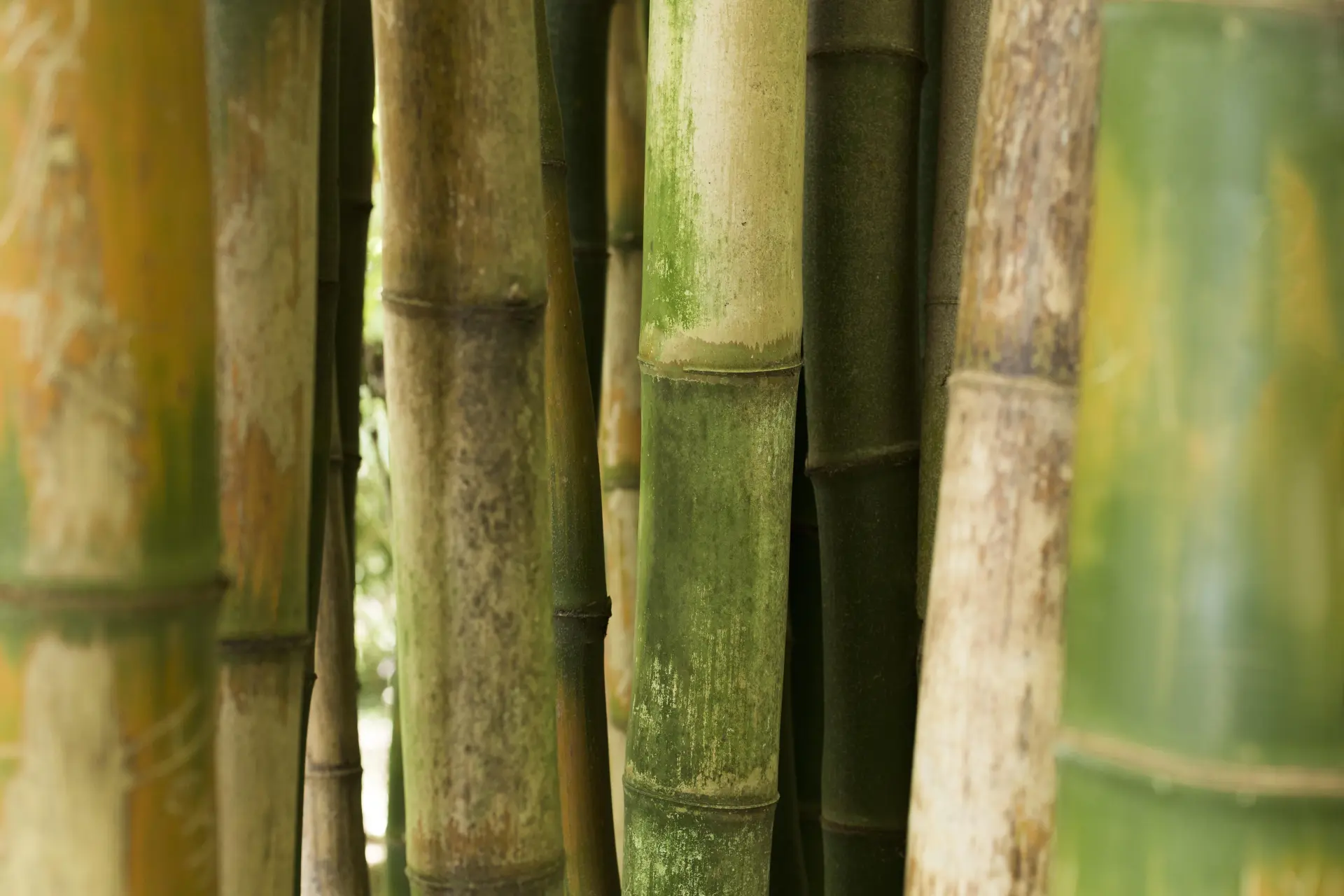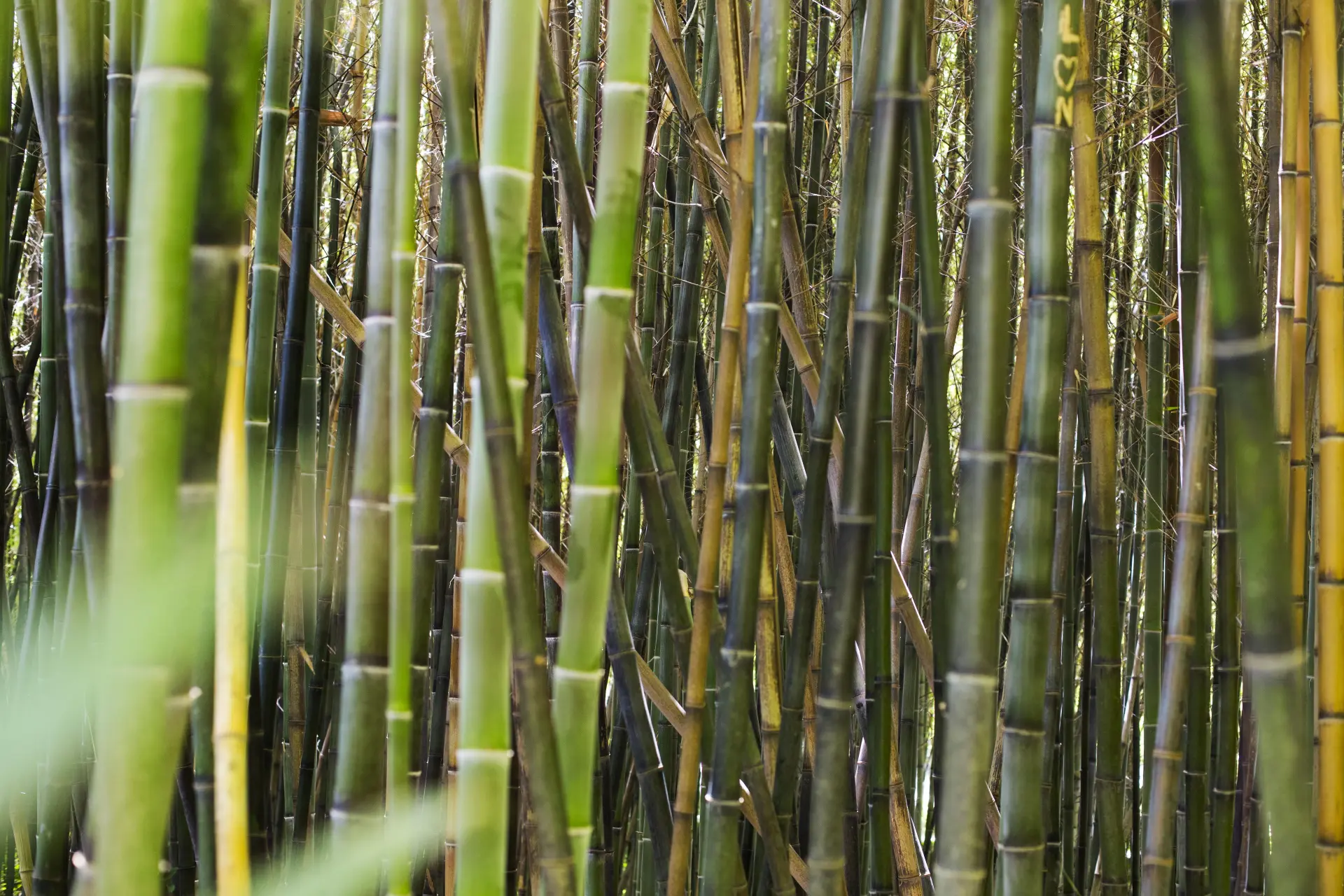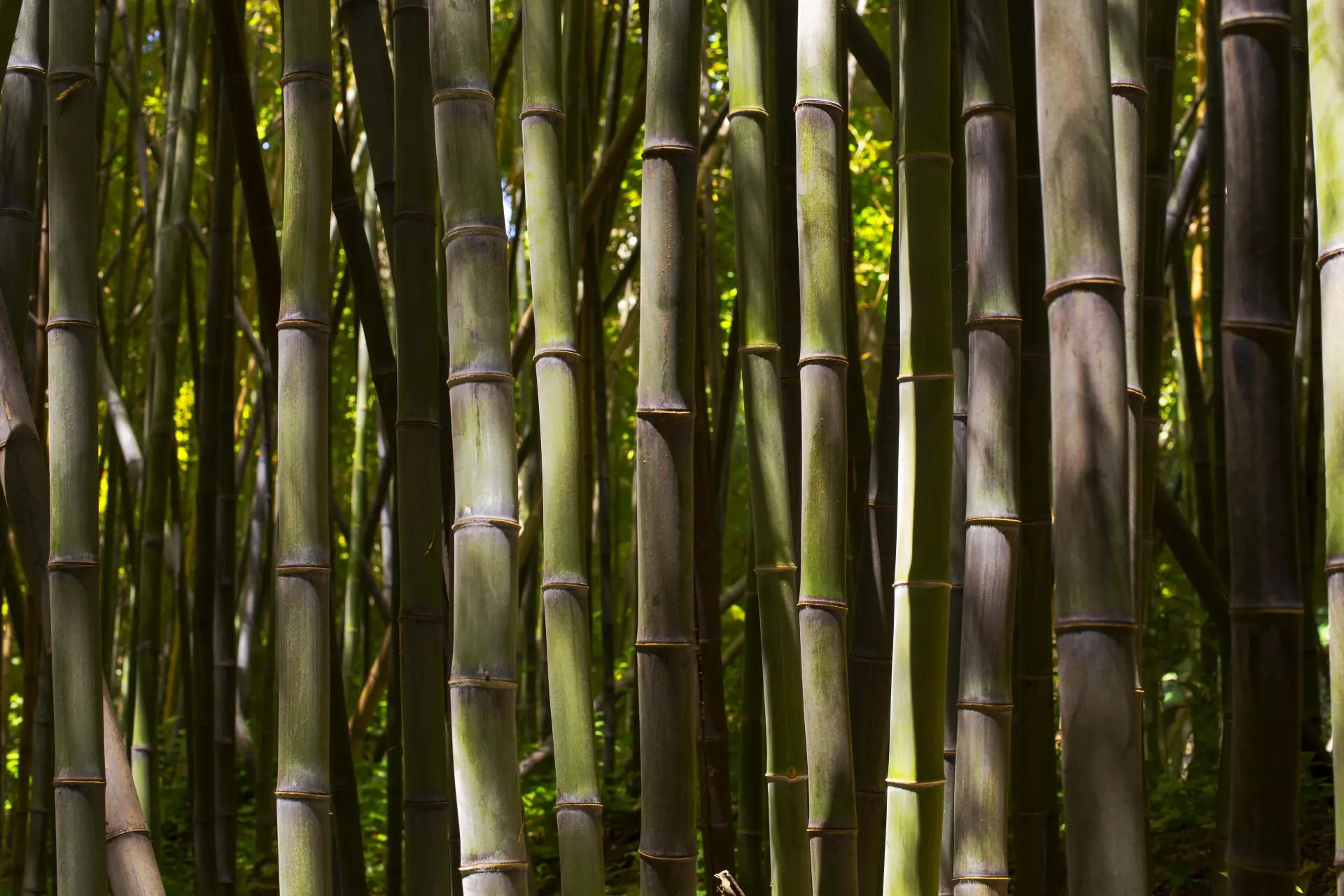Explore the impact of uncontrolled bamboo growth on native biodiversity, soil health & habitats in the UK. Learn about prevention strategies.
How Bamboo Affects Local Plant Biodiversity
Bamboo can hurt local plant biodiversity by outcompeting native species. Certain varieties of bamboo, such as Golden Bamboo, spread rapidly through underground rhizomes and form dense thickets that stop other plants from thriving. As bamboo grows, it shades out smaller plants and reduces their access to sunlight.
Additionally, bamboo has aggressive root systems that absorb large amounts of water and nutrients from the soil, depriving nearby plants of their essential nutrients. This can lead to a decline in native vegetation and can affect the wider ecosystem, including the insects and birds that rely on plants for food and shelter.
If bamboo is left unchecked, it can create monocultures where only bamboo can thrive. This disrupts the natural balance of plant life in a garden or local green space. Regular pruning, root barriers, and controlled watering can help keep bamboo in check, and ensure it doesn't dominate and harm local biodiversity.
Bamboo's Impact on Soil Health and Erosion

Bamboo can contribute to erosion if it's not controlled properly, as its rhizome system depletes the soil of nutrients and moisture. As a result, native plants can struggle to grow, and biodiversity can be significantly impacted.
Bamboo's dense root structure can also lead to soil compaction, making it harder for water and air to circulate, which affects soil fertility. While bamboo can help stabilise slopes and prevent erosion when it's maintained, it can have the opposite effect when it's not controlled.
Moreover, if bamboo is removed wrongly, the sudden loss of the root network can leave the soil loose and vulnerable to erosion, especially on inclines or near waterways.
Additionally, clusters of dropped bamboo leaves can alter the soil's composition and pH levels and reduce its nutrient diversity. To prevent long-term soil damage, proper bamboo containment, pruning, and removal methods should be used to manage this plant responsibly.
Long-Term Environmental Risks of Uncontrolled Bamboo
Uncontrolled bamboo growth can affect biodiversity, soil health, and local ecosystems. Due to its quick growth rate through underground rhizomes, bamboo can form dense monocultures that outcompete native plant species. This reduces habitat diversity and can impact the surrounding wildlife that depend on native plants for food and shelter.
Additionally, bamboo’s root systems can alter the structure of soil, leading to compaction and nutrient depletion, making it harder for other plants to grow and thrive. If it's left unmanaged, bamboo can also invade and damage nearby properties and drainage systems. In some cases, removing the bamboo can destabilise the soil and lead to soil erosion in sloped areas.
Without proper containment, bamboo can spread uncontrollably and become an invasive issue that is difficult to fix. Regular pruning, root barriers, and responsible planting can help prevent bamboo from causing long-term ecological damage.

How Bamboo Affects Native Wildlife Habitats
Uncontrolled bamboo growth can displace plants and alter ecosystems. Bamboo spreads quickly and forms dense thickets that outcompete local grasses, shrubs, and wildflowers. This excessive growth can reduce food sources for insects and wildlife that rely on plant diversity.
When bamboo takes over, it creates monocultures that provide little value for local wildlife. Many birds and small mammals in the UK depend on hedgerows and underground plants for nesting, which bamboo doesn't provide. Additionally, bamboo can make it harder for animals to move between habitats due to its dense formation.
If bamboo is left unchecked, it can decrease biodiversity and cause a long-term ecological imbalance. Properly containing, pruning, and removing bamboo is necessary to ensure this plant does not overtake native habitats and disrupt local wildlife populations.

If you need an invasive plant and bamboo removal service in Essex, London or throughout the UK, contact our expert today. We can keep your property free from invasive plants and weeds.

